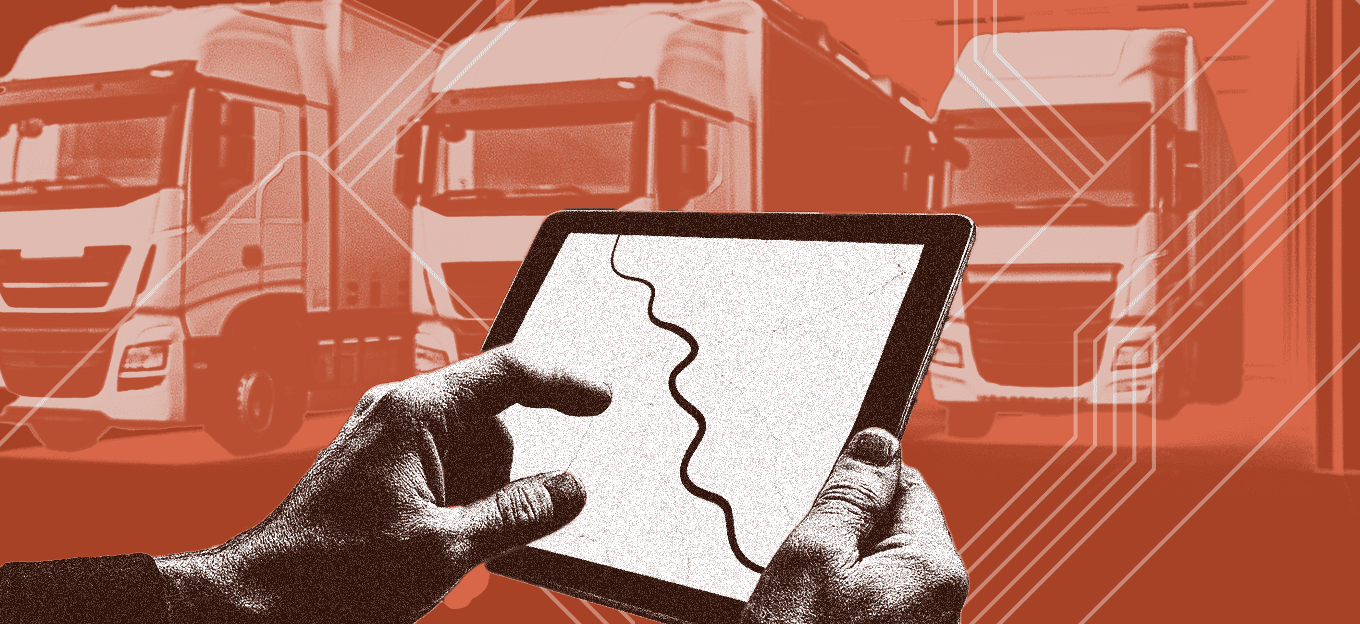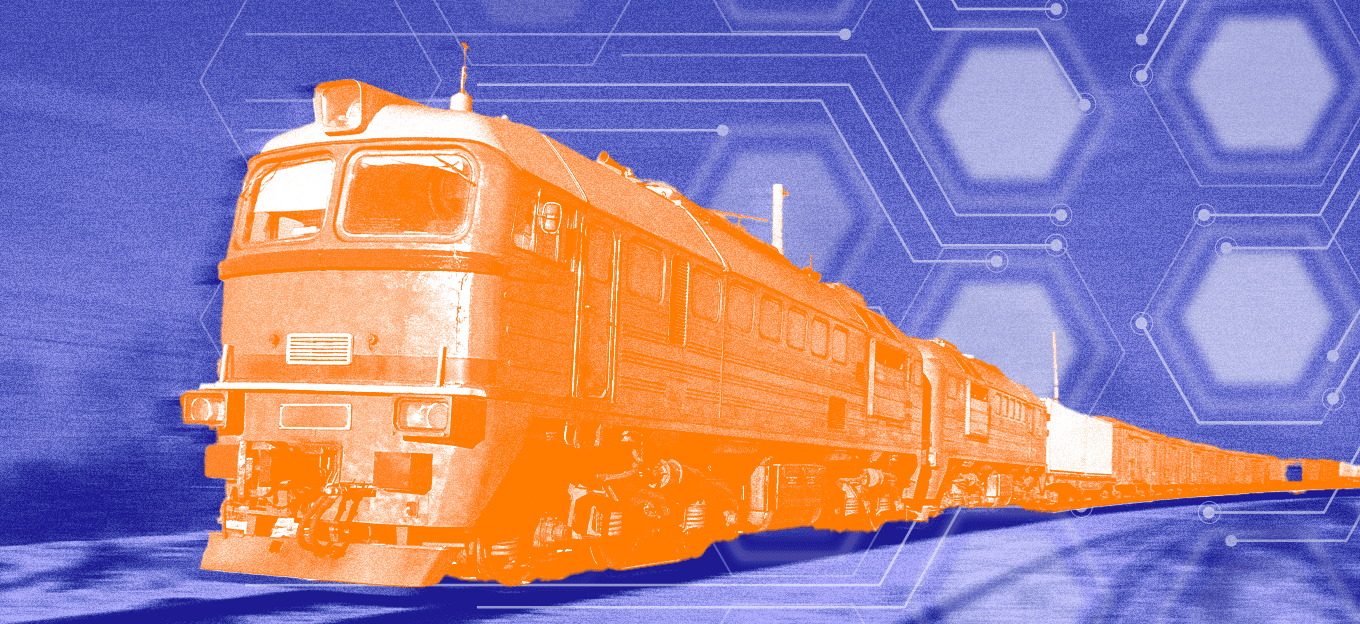The Evolution of IoT in Fleet Management
The Evolution of IoT in Fleet Management
- Last Updated: December 2, 2024
AMS IoT
- Last Updated: December 2, 2024



IoT in Fleet Management
The evolution of IoT in fleet management has been nothing short of transformative. We have gone from manual paper systems to real-time and data-driven operations. The IoT fleet industry has witnessed tremendous growth and efficiency.
As technology continues to advance, fleet management will become even more streamlined, safer, and environmentally friendly. It will set new standards for the logistics and transportation industries. This article discusses the past, present, and future role of IoT in fleet management.
The rapid advancement of technology has ushered in an era of connectivity that is revolutionizing industries. One such domain experiencing transformative change is fleet management, and at the heart of this evolution is the Internet of Things.
By integrating smart devices, sensors, and advanced algorithms, IoT provides unprecedented visibility and control over fleets of vehicles. This integration not only offers insights into vehicle performance and driver behavior but also has broader implications for areas like cargo security, predictive maintenance, and passenger experience.
From real-time tracking to optimizing routes, and from integrating with supply chains to enhancing safety protocols, IoT is redefining the landscape of fleet management. In the subsequent sections, we delve deep into how IoT is playing a pivotal role in reshaping the fleet management industry, its applications, benefits, and what the future might hold.
Past of IoT in Fleet Management
Before IoT, fleet management was primarily manual and relied heavily on drivers to provide updates on their location, vehicle status, and other crucial data. Paper logs, radio communications, and early GPS systems were the primary tools available.
This meant that there was often a delay in information, and data was not always accurate. Maintenance was reactive rather than proactive, as there was no way to monitor vehicle health in real time. Efficiency took a backseat because there wasn’t an effective way to track fuel consumption or identify idling times.
Present of IoT in Fleet Management
Today, IoT has become integral to the evolution of fleet management. Vehicles are equipped with sensors that provide real-time data on their location, speed, health, and even the driver's driving habits. Fleet managers can now monitor every vehicle's position on a centralized dashboard, ensuring timely deliveries and quick rerouting in case of roadblocks or emergencies.
Predictive maintenance has become a reality, with sensors detecting potential issues before they become significant problems. This not only reduces downtime but also helps in elongating the life span of vehicles. Furthermore, with real-time monitoring, companies can ensure drivers adhere to safe driving practices, leading to reduced accidents and liabilities.
Another significant advantage is the efficient utilization of resources. For instance, by monitoring fuel usage patterns, routes can be optimized to cut down unnecessary costs. Additionally, data-driven insights provided by IoT have enabled fleet managers to make better strategic decisions, whether it's scaling operations, investing in new vehicles, or training drivers.
Applications of IoT in Fleet Management
The following is a list of applications of IoT in fleet management:
- Battery life monitoring — A crucial feature, especially for assets that are remote and on the move. It ensures that trackers have ample battery life, and alerts are sent when battery levels are low.
- Driving behavior analysis — A feature that allows companies to monitor driver behaviors like hard braking, fast acceleration, and idling. This can be helpful in coaching drivers to adopt safer driving habits and can also lead to savings in fuel and maintenance costs.
- Unauthorized use alerts — Notifications that are triggered when assets are operated outside of predetermined hours or in unauthorized areas.
- Maintenance reminders — Schedules maintenance checks for vehicles and heavy equipment to ensure they are always in optimal condition. This feature can help reduce downtime and prolong the lifespan of the equipment.
- Downtime reporting — Analysis of how long vehicles or equipment are inactive, which can help companies optimize usage and reduce unnecessary expenses.
- Integrated reporting — A system that compiles data and generates comprehensive reports for analysis. This can aid in decision-making processes and pinpoint areas of improvement.
- API Integration — The capability for the fleet management system to integrate with other enterprise systems such as ERP, CRM, or HRM. This is to ensure proper data flow and operational efficiency.
- Fuel consumption monitoring — An essential feature for companies aiming to control and reduce fuel costs. It allows them to analyze fuel usage patterns and optimize routes.
- Route optimization — Uses real-time data and predictive analytics to determine the best routes for deliveries, reducing fuel costs and improving service times.
- Driver communication platform — A built-in communication tool that allows dispatchers or managers to communicate directly with drivers, providing instant updates or route changes.
- Asset utilization analysis — Determines how often and efficiently each vehicle or piece of equipment is being used. This can help companies make informed decisions about fleet expansion or reduction.
- Emergency alerts — In case of emergencies or unexpected situations, a system sends out immediate alerts to designated personnel or authorities.
- Multi-user access — Allows different stakeholders within a company, from managers to maintenance crews, to access the system based on their roles and permissions.
GPS fleet tracking has revolutionized the way companies manage their assets, ensuring operational efficiency, cost savings, and improved customer service. As technology continues to evolve, so will the features and benefits of fleet management systems, making it an indispensable tool for companies worldwide.
Future IoT in Fleet Management
As IoT technology continues its evolution, its implications for fleet management are even more promising. The advent of 5G will mean faster data transmission, enabling even more real-time monitoring and decision-making. Integration with artificial intelligence (AI) will allow for smarter route optimizations, taking into account various parameters like traffic conditions, weather, and delivery priorities. We can also expect more advanced predictive maintenance models that will predict vehicle issues with even greater accuracy.
Additionally, as autonomous vehicles become mainstream, IoT will play a pivotal role in managing and coordinating these driverless fleets. Advanced sensors will not only monitor vehicle health but also environmental conditions, ensuring maximum safety. Fleet management systems will become more integrated, connecting with other smart city systems to optimize logistics and transportation in urban environments.
There's also a strong potential for integrating IoT with green technology in fleet management. As businesses become more eco-conscious, fleet management systems will be equipped to monitor carbon footprints. Doing so ensures vehicles meet environmental standards, and helps companies transition to more sustainable methods of transportation.
Rapid Integration and Expansion
As industries worldwide recognize the potential of IoT in fleet management, the technology is likely to undergo rapid integration into existing systems and expand into new territories. Logistics, public transport, emergency services, and delivery-based businesses will increasingly depend on IoT-enabled fleet management solutions.
More Intelligent Algorithms
IoT devices generate large amounts of data. The algorithms used to process and analyze this data will need to be more sophisticated. Machine learning and AI models will better predict vehicle maintenance needs. They also need to optimize routes in real-time based on traffic patterns to improve overall fleet efficiency.
Increased Cybersecurity Measures
With the growth of IoT devices, security threats will also increase. Companies will invest more in robust cybersecurity measures to protect their fleet data. Ensuring data integrity and safeguarding against potential breaches will be paramount.
Expansion of 5G
The rollout of 5G networks will significantly boost the capabilities of IoT in fleet management. Faster data transmission will allow for real-time video streaming, quicker response times, and the ability to process vast amounts of data instantly.
Vehicle-to-Everything (V2X) Communication
In the future, vehicles will not only communicate with central systems but also with other vehicles (V2V), infrastructure (V2I), and even pedestrians (V2P). This holistic communication will enable better traffic management, reduce accidents, and enhance road safety.
Green Fleet Management
With increasing concerns about the environment, fleet managers will leverage IoT to reduce their carbon footprint. Monitoring emissions, optimizing routes for fuel efficiency, and transitioning to electric vehicles (with IoT-based charging solutions) will become standard.
Integration with Other Technologies
IoT will not work in isolation. It will integrate with other technologies like augmented reality (AR) for better navigation and maintenance, blockchain for transparent and tamper-proof recordkeeping, and drones for real-time aerial monitoring.
Customization and Personalization
Future IoT solutions will be highly customizable. Depending on the specific needs of a business or industry, IoT platforms will offer modular solutions that companies can tailor to their requirements.
Improved Passenger Experience
For fleets that cater to passengers, IoT will play a pivotal role in enhancing their journey. From in-vehicle entertainment systems that adapt to passenger preferences to seats that adjust based on biometric feedback, the passenger experience will be revolutionized.
Decision-making Enhancement
Decision-making processes will evolve from being merely data-driven to being predictive and prescriptive, as IoT, combined with AI, will not only provide insights but also suggest action points.
The fleet management industry stands at the cusp of a transformative era, with IoT leading the charge. As businesses increasingly adopt IoT solutions, the lines between vehicles, drivers, managers, and the environment will blur, creating an integrated, efficient, and responsive system. Those who harness the full potential of IoT in the evolution of fleet management will undoubtedly lead the future of transportation and logistics.
The Most Comprehensive IoT Newsletter for Enterprises
Showcasing the highest-quality content, resources, news, and insights from the world of the Internet of Things. Subscribe to remain informed and up-to-date.
New Podcast Episode

What is Software-Defined Connectivity?
Related Articles




